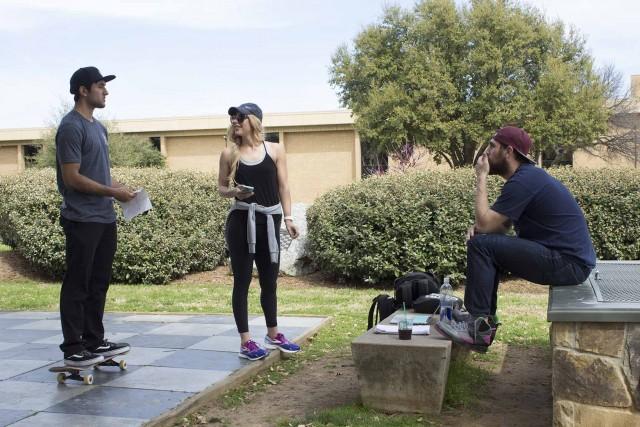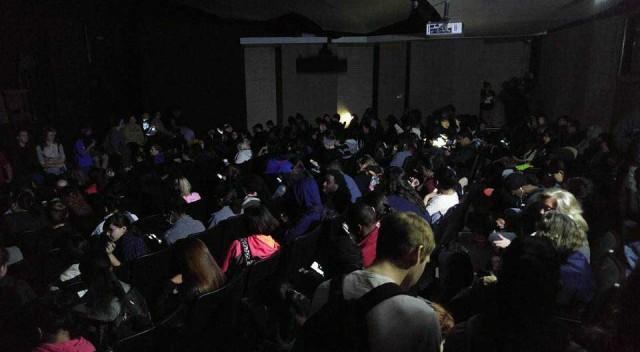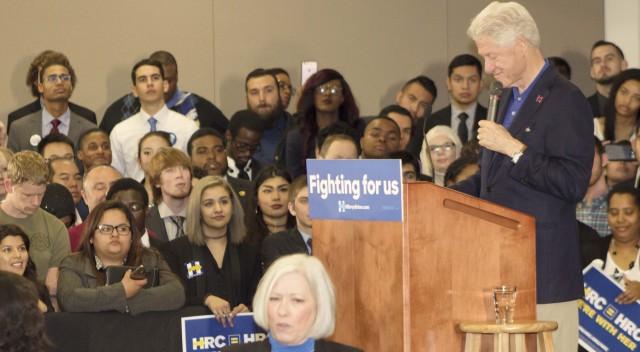By Gerrit Goodwin/ campus news editor
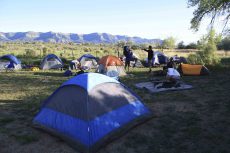
Photos courtesy David Sallee
Students interested in experiencing geology firsthand in the great American West need to hurry to reserve a spot for this year’s geoscience field school.
“It’s a shame that all science classes can’t be taught in the field,” NE geology instructor David Sallee said.
Sallee is leading this year’s trip and said it’s one thing for students to be lectured, read or shown PowerPoints on geology but another thing entirely for them to experience rafting down the Colorado River or touching an inactive volcano.
Students will travel through New Mexico, Arizona, Utah and Colorado over the course of two weeks and can see many of America’s prominent geological features such as the Garden of Gods, Rio Grande rift, Mesa Verde, Grand Canyon, Shiprock and Rocky Mountain National Park.
Sallee said physical and medical limitations need to be taken into consideration as the living arrangements accentuate what it means to experience geology. Students who attend will not only be tenting at campgrounds for the duration of the trip but will also be hiking day-to-day and living out of a duffel bag for two weeks.
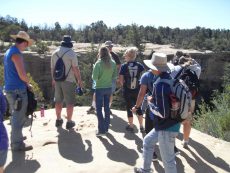
“It’s a great way to build camaraderie with people from all different backgrounds,” he said. “Students and even faculty members build bonds with each other. I still get emails from students who went years ago.”
First-year NE student Amanda Rea said she is planning on majoring in geology and felt the trip would be an educationally beneficial way to earn credits.
“I love moving around and traveling a lot and thought it would be a really fun way to go to places I have never been to or ever heard of,” she said. “I want a unique educational experience where I’ll learn and experience things about geology I would never get from sitting in a classroom.”
Rea said she has gone camping many times in the past and is a little nervous because she has never gone as long as two weeks but is more excited about the opportunity to travel.
“I’m excited to see the Grand Canyon, for sure, and the Garden of Gods because I went to Colorado about a year ago and got to see the Garden briefly, but I want to go back and spend more time there.”
The trip is not all sightseeing, however, and requires that students do research before, during and after the trip.
NE geology associate professor Kevin Barrett, who will also attend, said he is excited to see the meteor crater in Arizona and a historic flood site south of Estes Park, in Colorado, that killed hundreds of people in the 1970s.
“My specialty is as a hazards geographer, which means I study the ways the earth tries to kill us,” he said. “On the trip, students will be exposed to diverse subject matter, not just geology. We will research meteorology, physical geography, landscapes, people and culture. It’s a great opportunity and life experience.”
To attend, students must complete a questionnaire and liability waiver given to them by Sallee or geology associate professor Kevin Barrett. Students must then pay the full amount of $750 for trip expenses or the minimum of $375 to reserve their spots. Students then have two options regarding when they can take the required courses to go on the trip.
Spring registration ends March 26 for GEOL 1403 and 1403L and GEOG 1301 classes that begin April 2. Summer registration ends May 6 for GEOL 1404 and 1404L and GEOL 1447 and 1447L classes that begin May 13. A minimum of seven course hours must be taken to be eligible for the trip.
Only 15 students can attend the trip, so it is advised that students don’t procrastinate with their applications.
“No matter what students sign on for, they all learn something because they can all experience geology,” Sallee said. “When seeing it up close and touching it, it’s always better than what is expected.”






















